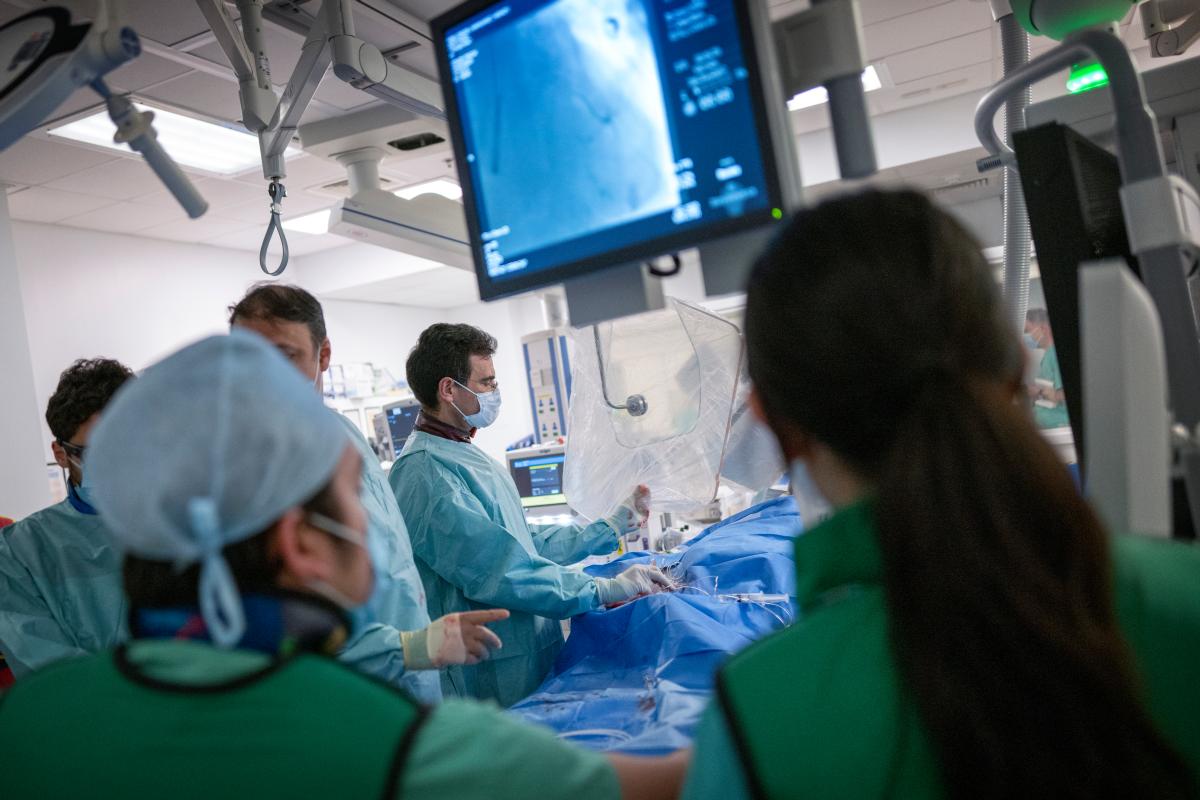First tests of new device to diagnose heart disease are successful

Researchers at Barts Health NHS Trust, in collaboration with colleagues at Queen Mary University of London and University College London, have carried out the first tests of a new device to help diagnose heart disease more easily and accurately.
Having access to more accurate information on the health of a person’s heart will allow doctors to better decide what course of treatment to prescribe – medication, surgery or no surgery, or indeed, if the patient can stop their medication.
The new device, called iKOr, uses a fibre optic sensor and a very thin catheter to check a person’s blood pressure, look for narrowing of the arteries and can even identify problems with the smallest of heart vessels.
However, before it can be widely used by doctors, researchers need to test if it works safely and easily in patients. The first tests in two patients, carried out at St Bartholomew’s Hospital, show that it is all of these things – safe for patients, easy to use and works.
Professor Anthony Mathur, lead researcher for this work, based at St Bartholomew’s Hospital and Queen Mary University of London said: “I am pleased to say that we have successfully used this technology in patients for the first time. This new device is a game changer in how we manage heart disease, making it a lot easier to assess the health of a person’s heart. I look forward to progressing this research and hopefully, seeing it benefit more and more people in east London and beyond.”
Heart disease is quite common in women but is often missed due to the vagueness of symptoms and a lack of awareness among women relating to the condition. Among the first patients to trial the iKOr was Margaret Green, 75. Margaret was the third pioneering patient to be involved in this trial, who has angina and experiences shortness of breath.
Speaking on her experience, Ms Green said: “It was a strange feeling but not uncomfortable. And I found out that I have something I’d never thought about: microvascular disease. “It’s brilliant that this research is being carried out in the NHS.”

The iKOr device, a tiny fibre optic cable, that can help diagnose heart disease
Dr Malcom Finlay, a consultant cardiologist at St Bartholomew’s Hospital said: “It’s an incredible highlight of my career to see a technology that we invented in the hospital and university being used for the first time: from bedside to bench and back!
“It shows the real, tangible benefit that collaboration between NHS hospitals and universities can have for patients my colleagues and I see day in, day out. And it’s a great example of why it’s important to carry out research in the NHS. Thank you to the patients who have agreed to be involved in this research and everyone who believed in our vision.”
The next steps will be to complete this proof-of-principle research by testing the device in at least eight more patients, followed by a larger clinical trial to further show that that the device is safe and works better than existing tests.
The iKOr device and underlying technology was developed through collaboration between Barts Health NHS Trust, Queen Mary University of London, University College London and Echopoint. The first tests were carried out in the cardiovascular devices hub at St Bartholomew’s Hospital, which was part-funded by Barts Charity,
